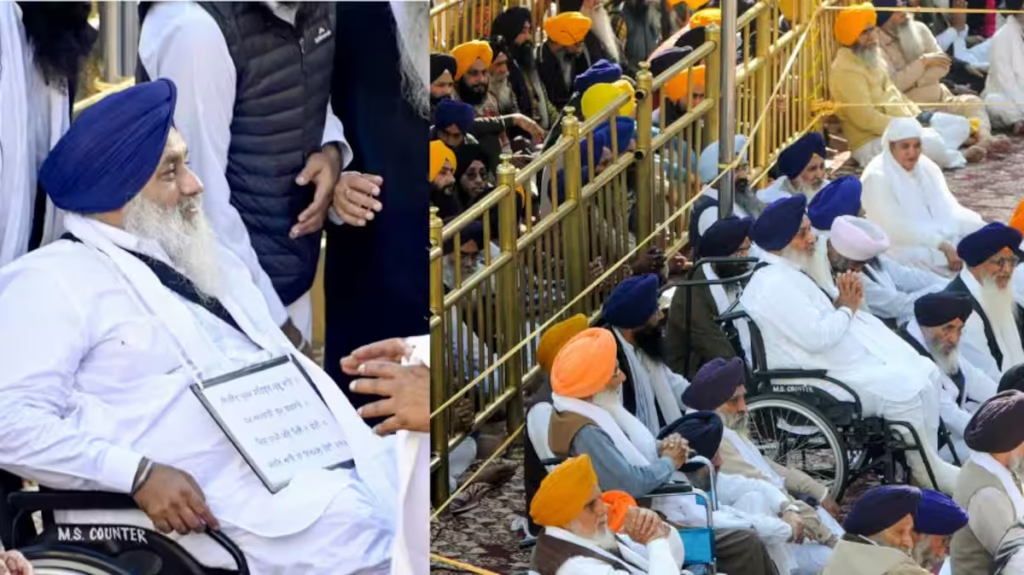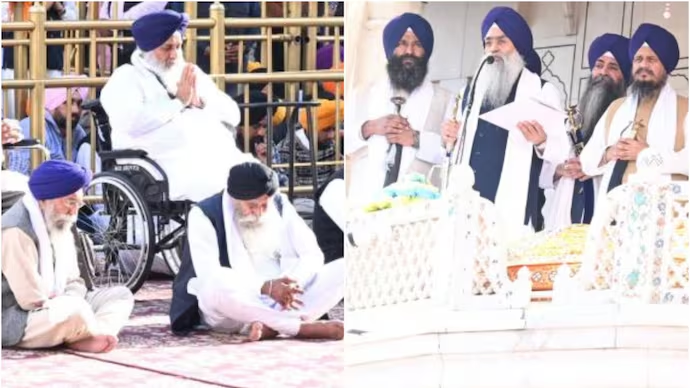Key Highlights:
In a major development within the political and religious circles of Punjab, the highest temporal authority of the Sikh community, Akal Takht, has commanded former Deputy Chief Minister Sukhbir Singh Badal to do ‘sewa’, or selfless service, at the Golden Temple in Amritsar. The jobs include cleaning toilets and washing utensils among others, and are seen as a form of penance for decisions taken during SAD’s governance between 2007 and 2017.

Background: The Akal Takht’s edict
On 30th August, 2024, the Akal Takht pronounced Sukhbir Singh Badal ‘tankhaiya’ (one who has committed religious indiscretion) for activities that were carried out during his term as the Deputy Chief Minister. According to the edict, Badal had to offer himself as a submissive Sikh before the Akal Takht seeking expiation for his ‘wrongs’ in the presence of the Guru Granth Sahib and five high priests.

The Nature of the ‘Sewa’
Sukhbir Badal was told to do ‘sewa’ in the Golden Temple, cleaning toilets and washing utensils. ‘Sewa’ is a concept deeply rooted in Sikhism, where one is to humble himself and treat everyone as equal. This act of ‘sewa’ signifies repentance and a promise of reform.
Reactions and Implications
The directive of the Akal Takht has received mixed reactions. While the supporters see it as a necessary step towards accountability and spiritual cleansing, the critics have labeled it as a politically motivated move. This event highlights the complex relationship between religion and politics in Punjab, where religious authorities play a crucial role in political affairs.
Conclusion
Mandated ‘sewa’ of Sukhbir Singh Badal at the Golden Temple remains a somber reminder that religious institutions continue to play a long-lasting role in Punjab’s politics. This reflects the importance Sikh society accords to humility, remorse, and the moral roles of its gurus.
For Latest News Updates Click Here
